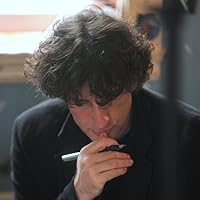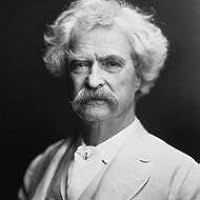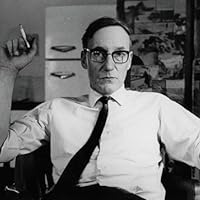Vernacular Quotes
Quotes tagged as "vernacular"
Showing 1-11 of 11

“This is a roadside attraction,' said Wednesday. 'One of the finest. Which means it is a place of power.”
― American Gods
― American Gods

“You may say what you want to, but in my opinion she had more sand in her than any girl I ever see; in my opinion she was just full of sand.”
―
―

“Ever notice how many expressions carry over from queers to con men? Like 'raise,' letting someone know you are in the same line?”
― Naked Lunch
― Naked Lunch

“I nod seriously, "Supes."
"You're mocking me."
"A little bit."
"People say supes!"
"What people?"
"I can't believe you're shaming me right now. I'm very sensitive about my use of cool vernacular."
"Then we're good. Because you haven't used any." I flash a grin.”
― All Things New
"You're mocking me."
"A little bit."
"People say supes!"
"What people?"
"I can't believe you're shaming me right now. I'm very sensitive about my use of cool vernacular."
"Then we're good. Because you haven't used any." I flash a grin.”
― All Things New

“Those who wish to write quickly a piece about nothing that no one will read through even once, whether in a newspaper or a book, extol with much conviction the style of the spoken language, because they find it much more modern, direct, facile. They themselves do not know how to speak. Neither do their readers, the language actually spoken under modern conditions of life being socially reduced to its indirect representation through the suffrage of the media, and including around six or eight turns of phrase repeated at every moment and fewer than two hundred words, most of them neologisms, with the whole thing submitted to replacement by one third every six months. All this favours a certain rapid solidarity. On the contrary, I for my part am going to write without affectation or fatigue, as if it were the most natural and easiest thing in the world, the language that I have learned and, in most circumstances, spoken. It’s not up to me to change it. The Gypsies rightly contend that one is never compelled to speak the truth except in one’s own language; in the enemy’s language, the lie must reign.”
― Panegyric: Books 1 & 2
― Panegyric: Books 1 & 2
“The Arabic Qur'an and authoritative Christian translations of the Bible into a limited number of languages contributed profoundly to the universalisation of a single ethnic religious—linguistic community in the Muslim case and to the distinction between major written languages and dialectic vernaculars in the Christian case. While the Islamic socio-political impact was thus in principle almost entirely anti-ethnic and anti-national, the Christian impact was more complex. Its willingness to translate brought with it, undoubtedly, a reduction in the number of ethnicities and vernaculars, but then a confirmation of the individual identity of those that remained: Christianity in fact helped turn ethnicities into nations.”
― The Construction of Nationhood: Ethnicity, Religion and Nationalism
― The Construction of Nationhood: Ethnicity, Religion and Nationalism

“Modern nationalism swept Europe alongside the flourishing of industrialisation. Across the continent, poets and intellectuals cultivated and often heavily modified vernacular languages to be bearers of 19th century modernity. These guardians of language faced significant challenges in adapting the spoken tongues of the peasantry to the demands of high literature and natural science. The story for the arts is widely known: modern Hungarian, Czech, Italian, Hebrew, Polish and other literatures blossomed in the second half of the century. However, the high valuation for efficiency in the sciences somewhat tamed this incipient Babel ["Absolute English," Aeon, February 4, 2015].”
―
―

“Whatever it was went through me like a rifle rag. Come dawn, me date was so hot you could have lit a sparkplug off of it.”
― The Shepherd's Hut
― The Shepherd's Hut

“The shapes of houses, sometimes transmitted through a hundred generations, seem eternally valid.”
― Architecture without Architects
― Architecture without Architects
“We had one horse, one mule, and a wagon. We had Horhay with his limp arm and his long past, and Dickie with his hopes for the necklace now dashed and turned to dread of its curse, and me with my ache for your mother who was destined to take her leave of me, and you with a life before you and a look of puzzlement on your face. We had your mother and her sweet baby to be. All together, it was a untidy mix of items.”
― The Madstone: A Novel
― The Madstone: A Novel
All Quotes
|
My Quotes
|
Add A Quote
Browse By Tag
- Love Quotes 97k
- Life Quotes 75.5k
- Inspirational Quotes 72.5k
- Humor Quotes 43.5k
- Philosophy Quotes 29.5k
- Inspirational Quotes Quotes 27k
- God Quotes 26k
- Truth Quotes 23.5k
- Wisdom Quotes 23.5k
- Romance Quotes 23k
- Poetry Quotes 22k
- Death Quotes 20k
- Happiness Quotes 18.5k
- Life Lessons Quotes 18.5k
- Hope Quotes 18k
- Faith Quotes 18k
- Quotes Quotes 16.5k
- Inspiration Quotes 16.5k
- Spirituality Quotes 15k
- Religion Quotes 15k
- Motivational Quotes 15k
- Writing Quotes 14.5k
- Relationships Quotes 14.5k
- Life Quotes Quotes 14k
- Love Quotes Quotes 13.5k
- Success Quotes 13.5k
- Time Quotes 12.5k
- Motivation Quotes 12k
- Science Quotes 11.5k
- Knowledge Quotes 11k


